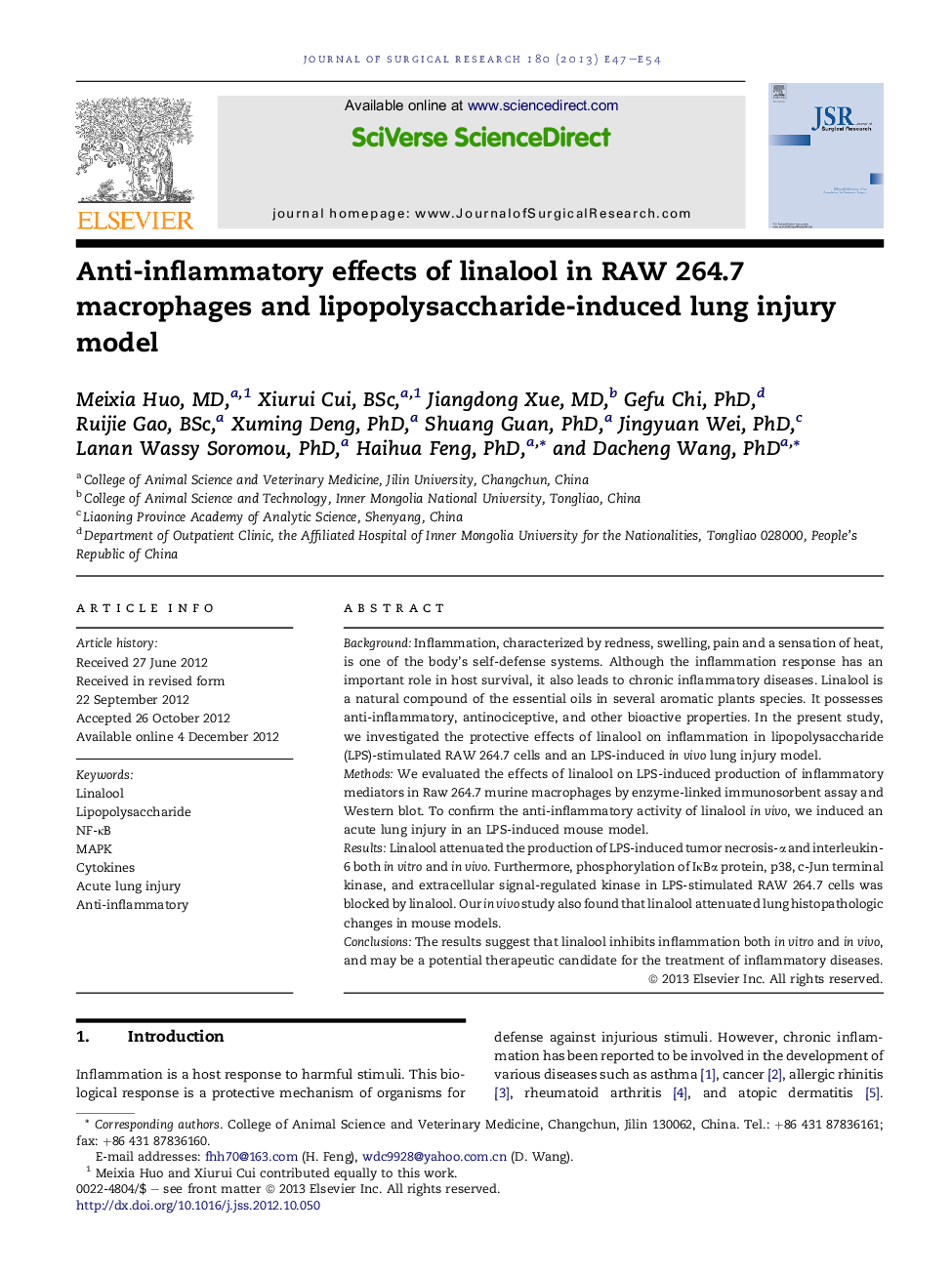| Article ID | Journal | Published Year | Pages | File Type |
|---|---|---|---|---|
| 4301191 | Journal of Surgical Research | 2013 | 8 Pages |
BackgroundInflammation, characterized by redness, swelling, pain and a sensation of heat, is one of the body’s self-defense systems. Although the inflammation response has an important role in host survival, it also leads to chronic inflammatory diseases. Linalool is a natural compound of the essential oils in several aromatic plants species. It possesses anti-inflammatory, antinociceptive, and other bioactive properties. In the present study, we investigated the protective effects of linalool on inflammation in lipopolysaccharide (LPS)-stimulated RAW 264.7 cells and an LPS-induced in vivo lung injury model.MethodsWe evaluated the effects of linalool on LPS-induced production of inflammatory mediators in Raw 264.7 murine macrophages by enzyme-linked immunosorbent assay and Western blot. To confirm the anti-inflammatory activity of linalool in vivo, we induced an acute lung injury in an LPS-induced mouse model.ResultsLinalool attenuated the production of LPS-induced tumor necrosis-α and interleukin-6 both in vitro and in vivo. Furthermore, phosphorylation of IκBα protein, p38, c-Jun terminal kinase, and extracellular signal-regulated kinase in LPS-stimulated RAW 264.7 cells was blocked by linalool. Our in vivo study also found that linalool attenuated lung histopathologic changes in mouse models.ConclusionsThe results suggest that linalool inhibits inflammation both in vitro and in vivo, and may be a potential therapeutic candidate for the treatment of inflammatory diseases.
